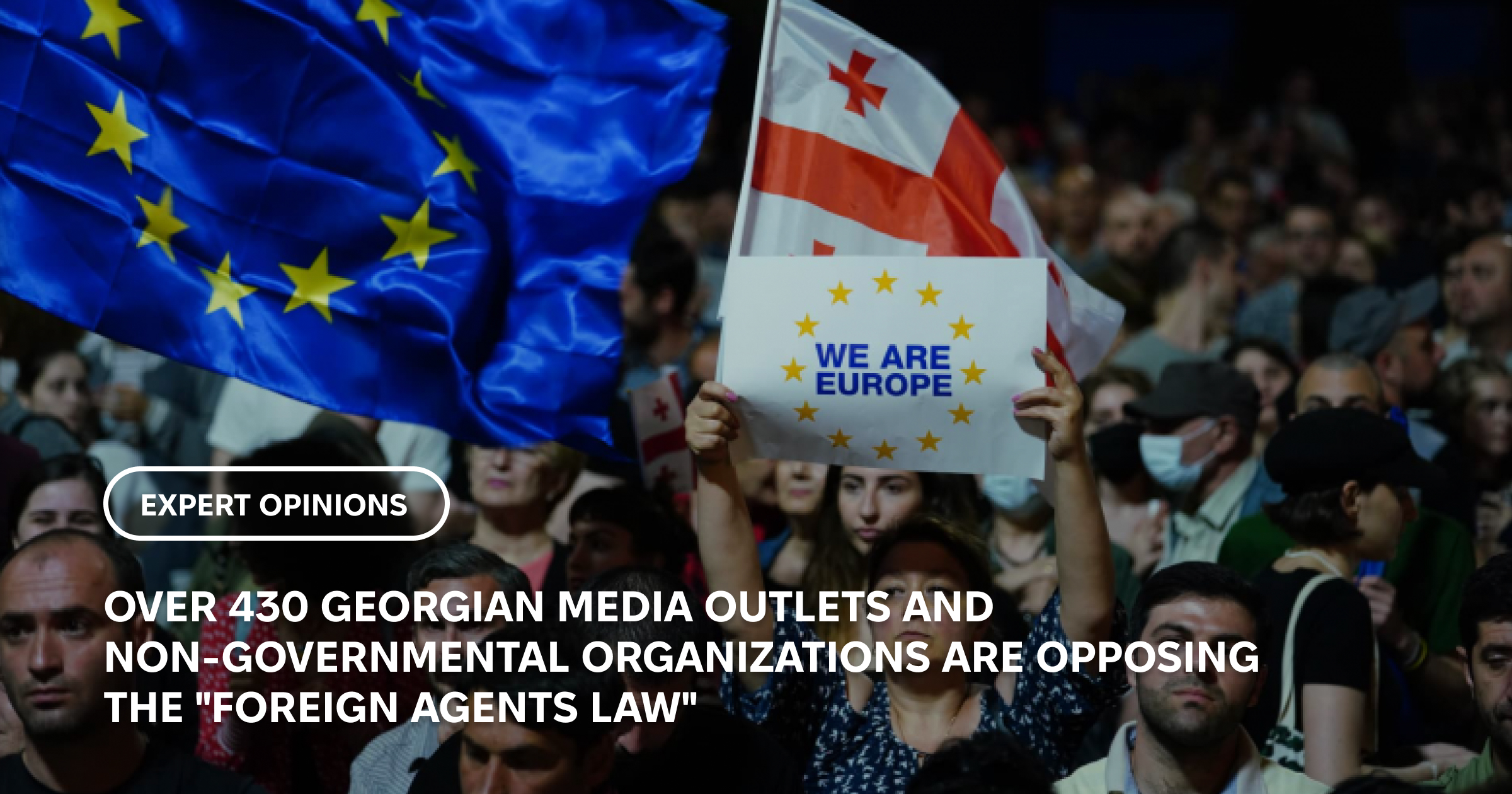What happened?
On May 1st, the Georgian Parliament approved the draft law “On Transparency of Foreign Influence” in the second reading, which, according to the opposition, echoes Russian legislation on “foreign agents.” The discussion of the law is accompanied by mass protest actions and clashes with the police. There are casualties.
Georgian President Salome Zurabishvili has stated that she will veto this law. Earlier, she also supported the protesters against this law.
“The proposed Bill directly contravenes Georgia’s obligations under key international treaties, including the European Convention on Human Rights, the International Covenants on Economic, Social, and Cultural Rights, and Civil and Political Rights.” says Russian/Canadian lawyer and a Senior Policy Analyst at the HIV Legal Network Mikhail Golichenko.
Position of the media and non-governmental organizations
More than 430 Georgian media outlets and non-governmental organizations oppose the adoption of this “Russian law.” The statement “Yes – to Europe, no – to Russian law!” and a list of all signing organizations have been published on the Civil Society Foundation’s website. The “Georgian Dream” party, violating its own word and deceiving people, is directed not only against Georgian media and Georgian non-governmental organizations but also against every citizen and the European future of Georgia.
Georgian non-governmental organizations help people. The adoption of this Russian law will leave vulnerable children and women who have become victims of violence; disabled people, scientists, workers, and youth; it will stop helping vulnerable families, displaced persons, the homeless, and brave people fighting for their rights,” the statement on the website notes.
“These and other hostile laws introduced this week are aimed at dividing the population, damaging the country’s European future, and canceling freedom of speech. This is the government’s response to hundreds of cases of violence, corruption, illegality, and discrimination exposed and published by Georgian non-governmental organizations and independent media.”
Earlier, the European Union, United Nations, NATO, OSCE, United States, and other international partners stated the authoritarian nature of the “Russian law” and its incompatibility with democracy, and after the withdrawal of the law last year, they openly congratulated the Georgian people on their great victory.
The risks for the healthcare system
Experts claim that this “Russian law” will significantly hinder access to healthcare for the most vulnerable population groups. The greatest risk is posed to programs related to HIV, viral hepatitis C, and SRHR (sexual and reproductive health and rights).
Tatyana Deshko, Director of the Department of International Programs at the Alliance for Public Health, states: “The potential impact of the law on healthcare programs in Georgia could be significant, especially for HIV programs, where non-governmental organizations are key service providers. If opportunities for work are restricted, the epidemic will grow. This is a pattern we have seen multiple times during the HIV/AIDS epidemic in many countries.”
The three main legislative changes of this law restrict the capabilities of civil society in ensuring the rights of the most vulnerable population groups, as well as the rights of the LGBTI community. The experience of Russia, which restricted healthcare programs only to drug users and MSM (men who have sex with men), has shown the destructive impact of these measures on HIV, viral hepatitis C, and STIs (sexually transmitted infections), with the official prevalence of HIV reaching 3-5% in some Russian cities.
“This law will have a detrimental impact on the health and well-being of international migrants and refugees residing in Georgia, particularly representatives of vulnerable groups who rely heavily on legal and psychosocial assistance provided by non-governmental organizations. These vital services are seldom available through commercial or state healthcare systems. NGOs operating in Georgia predominantly rely on foreign funding, and professionals specializing in migrant and refugee adaptation are rare and require years of training,” explains Daniil Kashnitsky, Coordinator for Academic Relations at the Regional Expert Group on Migrant Health.
(Regional Expert Group Analytical Report – “Forced migrants with HIV: social, psychological and medical aspects of adaptation”)
Mikhail Golichenko, a lawyer and international human rights expert, provided an expanded commentary:
The proposed Bill under consideration by the Parliament of the Republic of Georgia not only fails to uphold fundamental principles of fairness, transparency, and proportionality, as discussed in the preceding sections but also stands in direct contravention of the international obligations of the Republic of Georgia as stipulated by various key international treaties and conventions.
! Violation of the European Convention on Human Rights:
Sections 10 (freedom of expression), 11 (freedom of association), and 14 (freedom from discrimination) of the European Convention on Human Rights are cornerstone provisions safeguarding fundamental rights and freedoms. The arbitrary categorization of organizations as “the carrier of the interests of a foreign power” without due process or clear criteria violates the principles enshrined in these sections. By stifling freedom of expression and association and perpetuating discrimination through stigmatizing categorizations, the proposed Bill runs counter to the obligations of the Republic of Georgia under the European Convention.
! Violation of the International Covenant on Economic, Social, and Cultural Rights:
Article 12 of the International Covenant on Economic, Social, and Cultural Rights recognizes the right of everyone to the enjoyment of the highest attainable standard of physical and mental health. The disproportionate impact of the proposed Bill on organizations working in underfunded areas such as public health, particularly HIV prevention among key populations, directly undermines this right. By impeding the ability of civil society organizations to provide evidence-based health interventions, the Bill violates Georgia’s obligations under the Covenant.
! Violation of the International Covenant on Civil and Political Rights:
Articles 19 (freedom of expression), 22 (freedom of association), and 26 (freedom from discrimination) of the International Covenant on Civil and Political Rights underscore the importance of protecting individual liberties and ensuring equality before the law. The arbitrary selection of criteria and the use of stigmatizing language within the proposed Bill infringe upon these rights and principles. By subjecting organizations to arbitrary categorizations and potential discrimination, the Bill violates Georgia’s obligations under the Covenant.






